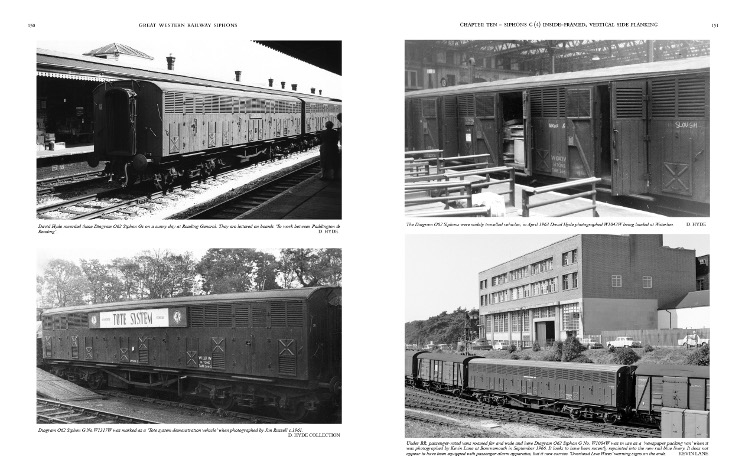Wild Swan Books
Great Western Siphons
A history of their design, development and operationJohn Lewis
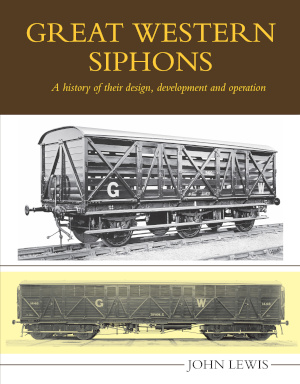
Hardback - 288 pages - £54.95
Contents- Broad Gauge Milk Vans
- Siphon B Four-Wheel 'Open' Siphon Designs
- Six-Wheel 'Open' Siphons [Diagrams O1 to O6]
- Siphon F [Diagram O7]
- Siphon C [Diagrams O8 & O9]
- Siphon G(1) prototype Siphon H [Diagram O10]
- Siphon G(2) Outside framed vans [Diagram O11]
- High Roof Siphon H [Diagram O12]
- Siphon G(3) Horizontally planked vans [Diagram O22]
- Siphon G(4) Inside framed vertical side planked vans [Diagrams O31, O59, M34, O62]
- Siphon J [Diagrams O31 & O40]
- Open Siphons - Liveries
- Closed Siphons - Liveries
- Miscellaneous Milk Train Vehicles [Diagrams O13 to O21, O24 to O30, O32]
- Milk Traffic
- Formations of Trains Conveying Siphons
The handling and transport of milk in churns on the GWR began in the second half of the nineteenth century. Early wagons were not purpose built, but gradually a series of specially designed vehicles evolved and these were given the code name 'Siphon'. In this book John Lewis describes the history, development and operation of this ubiquitous class of vehicles, widely used all over the GWR system before the development of bulk milk tankers and refrigeration.
Building on the earlier work on Siphons by Jack Slinn and Bernard Clarke, published by the Historical Model Railway Society in 1986, this book is the result of extensive new research and contains substantial additional information, including full listings of Lot numbers and vehicle histories. The book forms a definitive study of the Siphons and all the other vehicles that the Great Western Railway built, modified and used for the carriage of milk traffic.
Illustrated with numerous historic photographs and including official works drawings, the book describes developments in chronological order, detailing all developments and many of the alterations made to vehicles in service. The operation of milk traffic is also covered, with information on the various routes, workings and destinations being included in the text. This authorative work will appeal to modellers, historians and readers with an interest in the GWR and the transport of milk.
The book draws upon the extensive collection of photographs and information sourced by the late David Hyde, and has been produced with the full support of the HMRS, who kindly sourced original drawings from the National Railway Museum.
Example Two Page Spread [1]
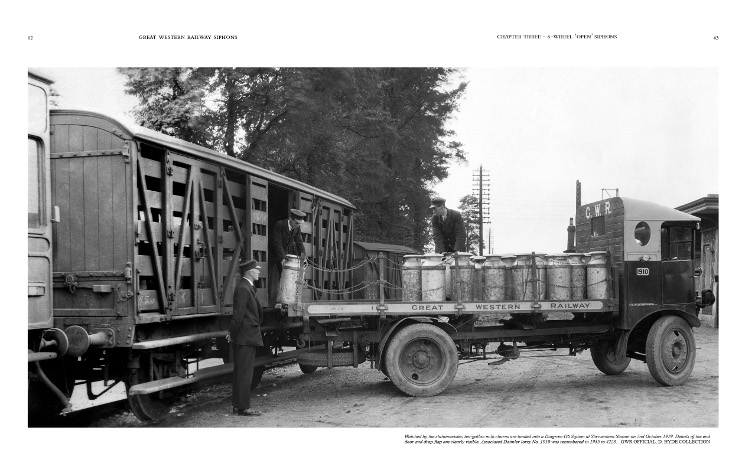
Example Two Page Spread [2]
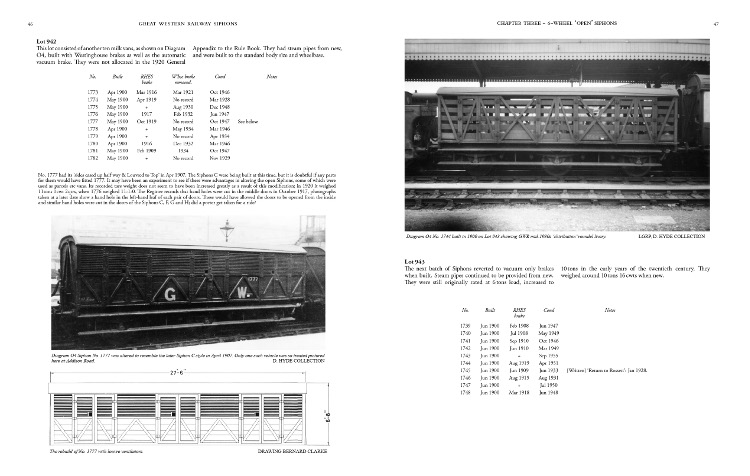
Example Two Page Spread [3]
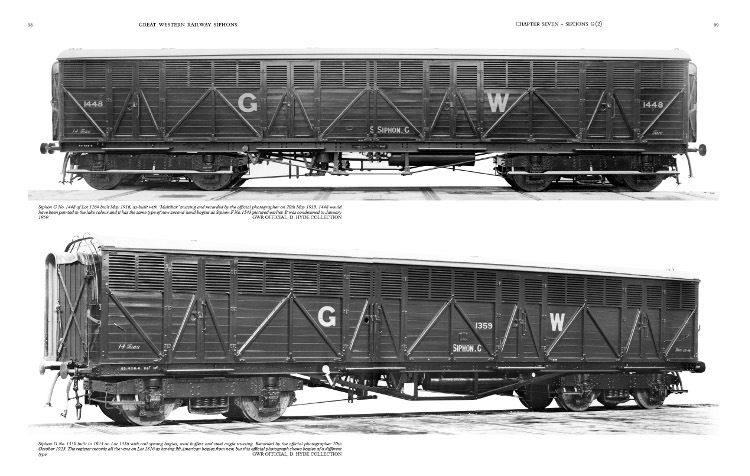
Example Two Page Spread [4]
